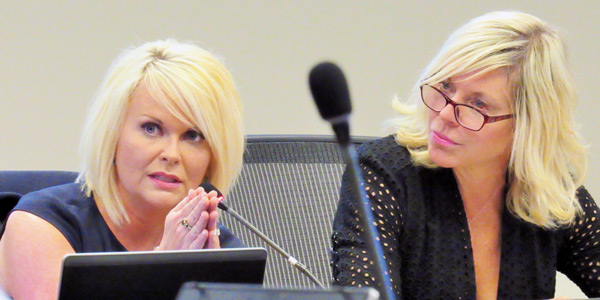Stakeholders last week continued discussions on MISO’s pseudo-tie approval process, even after narrowly approving more stringent requirements in December.
In a Feb. 22 Advisory Committee conference call, stakeholders learned that MISO did not file the proposed pro forma pseudo-tie agreement and Business Practices Manual language with FERC, as originally planned after the 5-4 approval by the Reliability Subcommittee on Dec. 16. There were 13 abstentions on that vote. (See MISO Stakeholders Narrowly Support New Pseudo-Tie Rules.) The RTO cited the narrow margin of victory and the fact that abstentions outnumbered ‘yes’ and ‘no’ votes in its decision to postpone a filing to better explain the proposed process to stakeholders.
Advisory Committee Chair Audrey Penner said the topic was brought back to the committee for more discussion at the request of stakeholders. She said no action was required under the Stakeholder Governance Guide, and the item was placed on the agenda only to bring it to the attention of the committee. “This doesn’t happen very often,” Penner said.
“It really signals that more stakeholders were interested in getting more information from MISO,” Vice Chair Tia Elliott said.
The proposed rules dictate that pseudo-tie owners notify MISO a year in advance of implementing a new pseudo-tie and create a congestion management process; the rules also say proposed pseudo-ties can be rejected if a market-to-market flowgate is not within 2% of MISO and the neighboring market’s calculated generator-to-load distribution factor.
Penner said MISO will not revoke existing pseudo-ties that fail the 2% test. “MISO believes that all pseudo-ties currently meet this requirement, and that’s why it won’t be retroactively applied,” Penner said.
Reliability Subcommittee Chair Tony Jankowski said he has not heard from MISO staff on whether the issue will be brought up for more discussion in his subcommittee. Stakeholders and the RTO are currently creating agenda items for the next subcommittee meeting in April.
Entergy’s Matt Brown said his company voted against the pseudo-tie proposal because of incomplete information but would consider a better documented agreement, even one with a requirement more stringent than the 2% threshold.
Committee to Hold Current Events Discussions
The Advisory Committee will begin holding quarterly current events discussions in response to stakeholder calls for more in-depth policy conversations.
Penner said the committee will set aside time for discussions of policy issues and industry trends beginning at the next in-person meeting in New Orleans on March 22. Penner said she envisioned committee members tackling no more than two topics per meeting. The quarterly discussion format arose from MISO’s stakeholder redesign. (See MISO Takes Stakeholders’ Temperature on Redesign.)
American Electric Power’s Kent Felix said he viewed the discussions as another opportunity for stakeholders to guide MISO on policy issues. WEC Energy Group’s Chris Plante asked if the committee’s stakeholder sectors might vote to express positions on the topic. Penner said committee leadership had not discussed the possibility of voting during the discussions, but it could be explored.
Madison Gas and Electric’s Megan Wisersky asked if the discussions would be recorded in minutes. Penner said she would take notes, as she could not partake in the discussion as chair, but said it remains to be seen if there would be formal notetaking from MISO.
Penner asked for topic ideas for the first discussion by March 1.
Steering Committee Able to Approve Charters, Management Plans Again
Stakeholders approved a correction to the Stakeholder Governance Guide that restores the Steering Committee’s power to approve charter and management plans.
Elliott said edits approved in December inadvertently deleted a sentence that delegated charter and management plan review for MISO parent committees to the Steering Committee.
“If we don’t get to this change, the Advisory Committee will have to approve all of the charters,” Elliott said.
After its powers were restored, the Steering Committee approved by consent several charters or management plans, including those governing the Market Subcommittee, the Seams Management Working Group, the Resource Adequacy Subcommittee, the Loss of Load Expectation Working Group, the Planning Advisory Committee, the Planning Subcommittee and the Interconnection Process Task Force.
— Amanda Durish Cook





